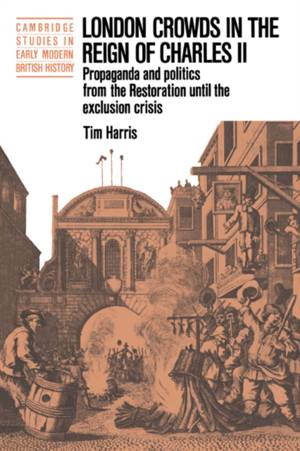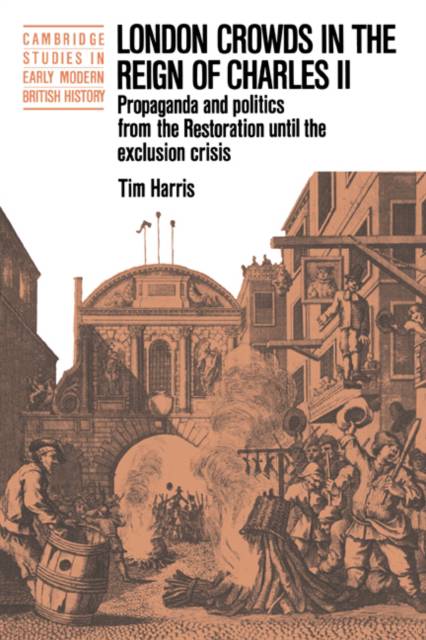
- Afhalen na 1 uur in een winkel met voorraad
- Gratis thuislevering in België vanaf € 30
- Ruim aanbod met 7 miljoen producten
- Afhalen na 1 uur in een winkel met voorraad
- Gratis thuislevering in België vanaf € 30
- Ruim aanbod met 7 miljoen producten
Zoeken
London Crowds in the Reign of Charles II
Propaganda and Politics from the Restoration Until the Exclusion Crisis
Tim Harris
€ 88,95
+ 177 punten
Uitvoering
Omschrijving
This study of the political attitudes of ordinary Londoners during the reign of Charles II examines not only the manifestations of public opinion - for example, riot and demonstration - but also the manner of its formation - religious experience, economic activity, and exposure to mass political propaganda. Professor Harris shows to be misleading the conventional view, that the whigs enjoyed the support of the London masses, and the tories were essentially anti-populist. Both sides had public support during the exclusion crisis, and this division stemmed from fundamental religious tensions within London political culture, dating back to 1660 and before. Attractively illustrated with polemical contemporary engravings, London Crowds demonstrates clearly the value of bringing together both high and low activity into a truly integrated social history of politics, and sheds important new light not just on urban agitation but on the nature of late-Stuart party conflict.
Specificaties
Betrokkenen
- Auteur(s):
- Uitgeverij:
Inhoud
- Aantal bladzijden:
- 284
- Taal:
- Engels
- Reeks:
Eigenschappen
- Productcode (EAN):
- 9780521398459
- Verschijningsdatum:
- 25/05/1990
- Uitvoering:
- Paperback
- Formaat:
- Trade paperback (VS)
- Afmetingen:
- 155 mm x 229 mm
- Gewicht:
- 426 g

Alleen bij Standaard Boekhandel
+ 177 punten op je klantenkaart van Standaard Boekhandel
Beoordelingen
We publiceren alleen reviews die voldoen aan de voorwaarden voor reviews. Bekijk onze voorwaarden voor reviews.











